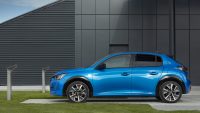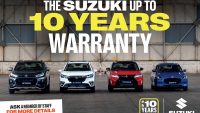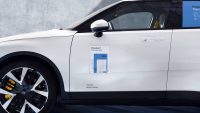SOME car dealers run scared from social networking websites like Twitter and Facebook…
…But Gforces Tim Smith explains here how you can use them to keep your customers in touch.
 WHAT began with a single horrifying car crash in southern California last August became a worldwide automotive incident resulting in an unprecedented recall of millions of Toyota vehicles. Strangely the question can be posed; could such a crisis actually help a brand’s perception?
WHAT began with a single horrifying car crash in southern California last August became a worldwide automotive incident resulting in an unprecedented recall of millions of Toyota vehicles. Strangely the question can be posed; could such a crisis actually help a brand’s perception?
The internet and, in particular, social networking sites have reset the rules for handling a brand crisis, yet manufacturers and dealers like Toyota still appear to be risking their reputations by failing to adapt their defence strategies to the real-time and candid nature of the online environment.
When Toyota eventually started dabbling with social media, some four months later, they launched Facebook groups offering support. They were shocked to discover the extent of the backlash within the social communities; they had underestimated the online fallout.
If this communication had been done earlier, then perhaps some of the brand’s problems could have been avoided, but today even more people are talking about Toyota. It can be argued however that if people are talking about the brand more and sometimes in a neutral light, it increases its exposure. Therefore dealers shouldn’t see all publicity about a harmful event as negative publicity.
Understandably dealerships fear publishing communications online will lead to more negativity, when in fact social media can mend problems rather than make them worse. Yes, getting your message across fast is essential, but the understanding is that social media is the 21st century voice for dealers. A slow response is a sign that the company doesn’t have a proper crisis management strategy in place.
REINFORCING
Essex Auto Group, a multi-franchise dealership in Essex built themselves an online community to reinforce the manufacturer’s message. By creating a social network, should a harmful event occur, they are in the ideal position to respond quickly, acknowledge mistakes, treat perceptions as fact and emphasise existing relationships without fear of tarnishing their brand image.
Moreover in an economy that could finally be seeing light at the end of the tunnel, dealerships shouldn’t be so quick to judge social media’s power. From the smallest internet forum to the front page of Digg, the marketing opportunity for your dealership can be substantial.
A study by NMA.co.uk highlights the reach of social networks among the total UK internet audience is currently 86 per cent, proving that it is here to stay, so you should join the fray. No dealership should try and market using social media without understanding that faking an interest in a community just to generate sales won’t work.
Moving forward social media will be the number one marketing activity which businesses can manage to develop not only brand awareness, but also a substantial stakeholder position within their online community.
Dealers may not see the need for a crisis management strategy yet but understanding how social media can aid as a defence barrier, be used to communicate manufacturer messages and offer support to individual customers can help retain positive brand perception.
Don’t get over-excited though, it is not an instant results marketing tool. It takes months of hard work and a long-term strategy to establish a reputation and build your social network. It takes even longer to generate a solid return on investment for your efforts.
Before embracing social media marketing, all businesses are cautioned to consider the pitfalls carefully and a dealer’s commitment should reflect this reality as bad publicity isn’t likely to generate you a healthy ROI if any at all. After all what’s a voice without a face?

































